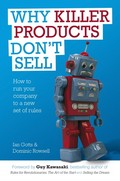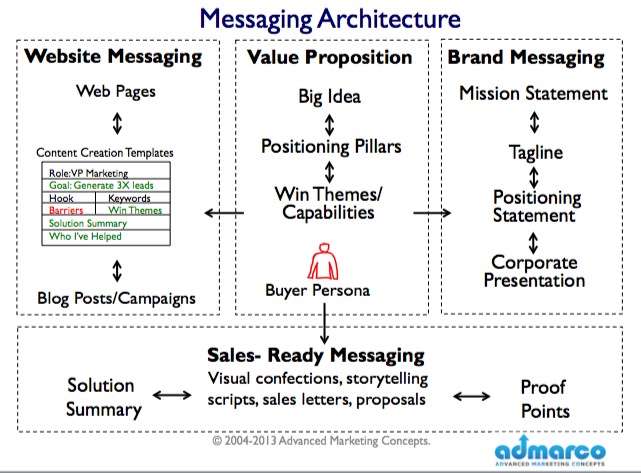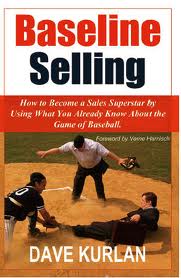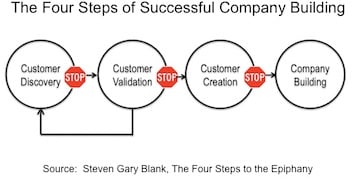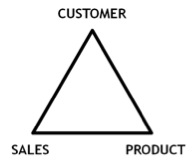Most VC's will see more than 100 opportunities a year and invest in a handful, representing the combination of best teams, best products, great business cases and a market receptive for the products.
Is this Darwinian or the hidden hand of some great technology creator?
What happened to that great investment?
If the due diligence was correct and the product works and there is a market, how come there are so few stars and so many companies struggling to win new accounts after the founders handed over the selling to the professionals?What if anything can be done about it?
Our business is in improving the performance of early-stage and mid-sized technology companies through aligning sales and marketing messaging around the buyer; creating transparency in sales process; and in teaching people to sell consultatively and to disrupt status-quo thinking.
I was delighted to find and read in "Why Killer Products Don't Sell"by IanGotts and DominicRowsell, a clear and logical explanation of why so many early-stage companies get it wrong.
Symptoms of a problem?
On an assignment in an early-stage software company last week, with the book fresh in my mind, was not surprised to learn they had hired and fired 5 sales people in the prior 3 years - none of them could sell their product.So many companies with novel products make the same mistake. It goes something like this; - after the founders have made the first few sales, the owners decide it's time to hit the gas. They raise a funding round to ramp sales against an aggressive target; hire a sales director and team of proven sales professionals. WARNING!
Did anyone specify these sales people will look more like consultants; that they need early-stage or start-up experience; are comfortable calling-high and having business conversations with senior execs about their problems (consultative selling).
According to authors IanGotts and DominicRowsell, symptoms of the problem are:
- Sales are stalled, you generate plenty of interest, but mainly educate
- Numerous pilots, but no pull through
- Big deals keep slipping from one quarter to the next (value-created customer buying cycles have no connection to the quarterly revenue problem)
- You run out of mates and technology enthusiasts to sell
- Small incremental sales, but no large follow-on orders
- You confuse your customer and you have internal arguments about whether you are a consulting company or a product company...(this is irrelevant, to your customers you are a product company).


